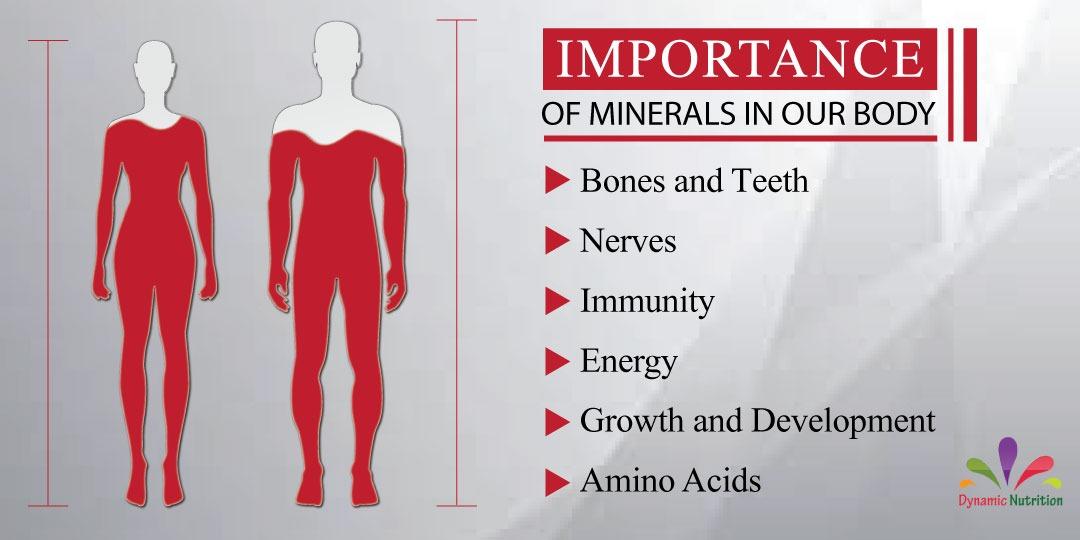Minerals are the nutrients that exist in the body. They are inorganic substances that occur naturally in non-living things such as water, rocks, soil, plants and animals. Minerals are important factors in maintaining all physiological processes. They are constituents of the teeth, bones, tissues, blood, muscle, and nerve cells. Different minerals require different amounts but they are all essential.
Besides, minerals also acting as catalysts for many biological reactions within the human body. They are necessary for transmission of messages through the nervous system, digestion, and metabolism or utilization of all nutrients in foods. While vitamins cannot properly assimilate without the correct balance of minerals. For examples: vitamin C utilization needs calcium, vitamin A needs zinc, vitamin B complex needs magnesium, vitamin E needs selenium and so on.
Importance of Minerals
Below here are some importance of minerals in our body:
- Bones and Teeth
Calcium is the most abundant mineral in your body. It combines with phosphorus to form calcium phosphate, the salt compound that makes up your bones and teeth. Magnesium is necessary for the manufacture of bone-producing cells called osteoblasts. It contributes to the ongoing process by which old bone tissue is broken down so that new tissue can be formed. Manganese is necessary for the function of an enzyme that assists with bone formation.
- Nerves
Calcium triggers release of neurotransmitters between nerves and between nerves and muscles. While Sodium and potassium move back and forth, trading places across your nerve cell membranes to help maintain an electrical charge. Besides, Magnesium helps calm your nerves.
- Immunity
Zinc helps for proper wound healing and ward off respiratory infections by preventing bacteria from attaching to the membranes of your throat. Besides, Selenium offers antioxidant that reduce stress on the immune system. It enhances the ability of white blood cells to attack and kill pathogens.
- Energy
Potassium helps with carbohydrate metabolism. While chromium works with insulin to maintain healthy blood sugar levels and sensitized your brain to the level of sugar in your blood so that your brain can control your appetite, food intake and blood sugar. Iron distributes oxygen throughout the body as part of red blood cells.
- Growth and Development
Iodine regulates growth and development of thyroid hormone. While iron contributes to the formation of myelin, the fatty substances that insulate nerve cells.
- Amino Acids
Sulphur is present in certain amino acids, such as methionine and cysteine, which function as part of the liver’s detoxification pathways and are important in metabolism and formation of proteins. Cobalt forms part of the structure if vitamin B12, which is necessary for the manufacture of methionine. Moreover, magnesium helps for protein production and stabilizing protein molecules.
Colloidal Minerals
Colloidal minerals are ancient mineral nutrients that are extracted from shale deposits formed through the decomposition of prehistoric plant life. Almost all the colloidal mineral supplements are from shale deposits in Utah or neighbouring areas.
Colloidal minerals particles are very small that suspended in water. This eventually makes them easier for our body to absorb them into our blood stream more efficiently.
Find out colloidal minerals here!












Facebook Comments